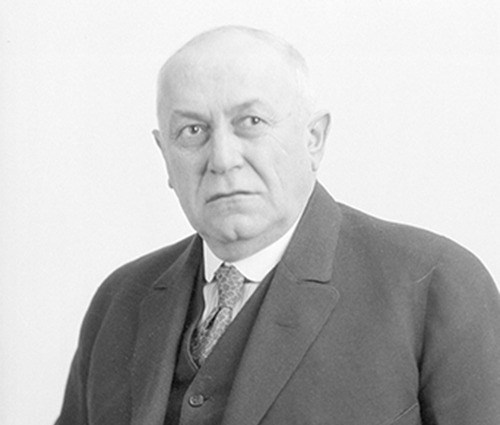In celebration of Vancouver Craft Beer Week, lets delve into the history of our citys most entrepreneurial brewing family.
Henry Reifel came to Vancouver in 1888, aged 19, with his brothers Jack and Conrad. They came from beer-making stock in Bavaria and had already spent two years working in breweries in Portland and San Francisco. Once here, Henry and Jack opened the San Francisco Brewery, perhaps inspired by their time there.
The brewery was near Main and 11th, an area then called Brewery Creek. In fact you can trace the origin of Vancouvers craft brewing industry right back to this sleepy stream in Mount Pleasant, today winding its way underneath busy streets. In Vancouvers early years a number of breweries made use of the creek, a ready supply of fresh water.
Unfortunately for the Reifels, their brewery struggled and they sold only months after opening but by the First World War, Henry Reifel had got the formula right for building successful breweries. Now married and with three adult children, he owned the Canadian Brewing & Malting Company amongst other businesses and was a major player in the BC brewing industry.
The trouble for Henry was that being a German businessman in First World War Canada was a tough gig. To make matters worse, prohibition arrived in 1917, essentially closing down the brewing industry.
So like any entrepreneur worth his salt, Henry moved on to the next opportunity. Packing up his brewing equipment and enlisting son George, he set sail for Japan. Founding the successful Anglo-Japanese Brewing Company, he and George even developed a method for making malt from rice. Before long, however, Henry and George were lured back to Vancouver.
Prohibition was repealed in BC in 1921, but in the US it would run until 1933. So, for about 12 years, if you were an enterprising BC brewer, with enough cash to buy boats and recruit sailors (and perhaps pay the odd bribe), you could conduct your very own rum-running operation. Henry and George fitted the bill exactly and they set about the task with zeal.
The Reifels added to their breweries by acquiring the B.C. Distillery in New Westminster. They bought a large tract of marsh land in Delta, with long grasses perfect to hide boats (incidentally, the land was gifted by the family to the federal Crown and is now the George C. Reifel Migratory Bird Sanctuary). Before long the Reifels rum-running business was working like clockwork down the coast.
 Their vessels would make their way south packed full of liquor and crewed by hardy ex-Navy men. Always staying at least 12 miles off the US coast and in international waters, hence out of reach of the US Coast Guard, the vessels would eventually reach Rum-Row, a veritable floating warehouse of bootleg liquor just off the coast of Mexico. Legend has it the Malahat, the largest of all the boats stationed at rum-row, was able to hold over 100,000 cases of liquor. American middlemen would then sail out from California, buy their liquor and head back home.
Their vessels would make their way south packed full of liquor and crewed by hardy ex-Navy men. Always staying at least 12 miles off the US coast and in international waters, hence out of reach of the US Coast Guard, the vessels would eventually reach Rum-Row, a veritable floating warehouse of bootleg liquor just off the coast of Mexico. Legend has it the Malahat, the largest of all the boats stationed at rum-row, was able to hold over 100,000 cases of liquor. American middlemen would then sail out from California, buy their liquor and head back home.
Rum-running made the Reifels staggeringly rich. They built the Casa Mia mansion on SW Marine Drive. They owned sports cars, private airplanes and country estates. George even financed the building of the Commodore Ballroom and Vogue Theatre. When the US finally repealed prohibition in 1933 the Reifels knew the game was up and promptly sold their breweries and distilleries.
So next time you are in the Commodore or the Vogue, spare a thought for old Henry and George, two of Vancouvers greatest brewers and most daring entrepreneurs.
Will Woods is the chief storyteller at Forbidden Vancouver Walking Tours. Check out his Prohibition City, running on Thurs. and Sat. nights until June 9; then every Wed., Thurs., Fri. and Sat. night until Sept. 15. ForbiddenVancouver.ca. This article is with thanks to Jason Vanderhill and his blog Illustrated Vancouver.



